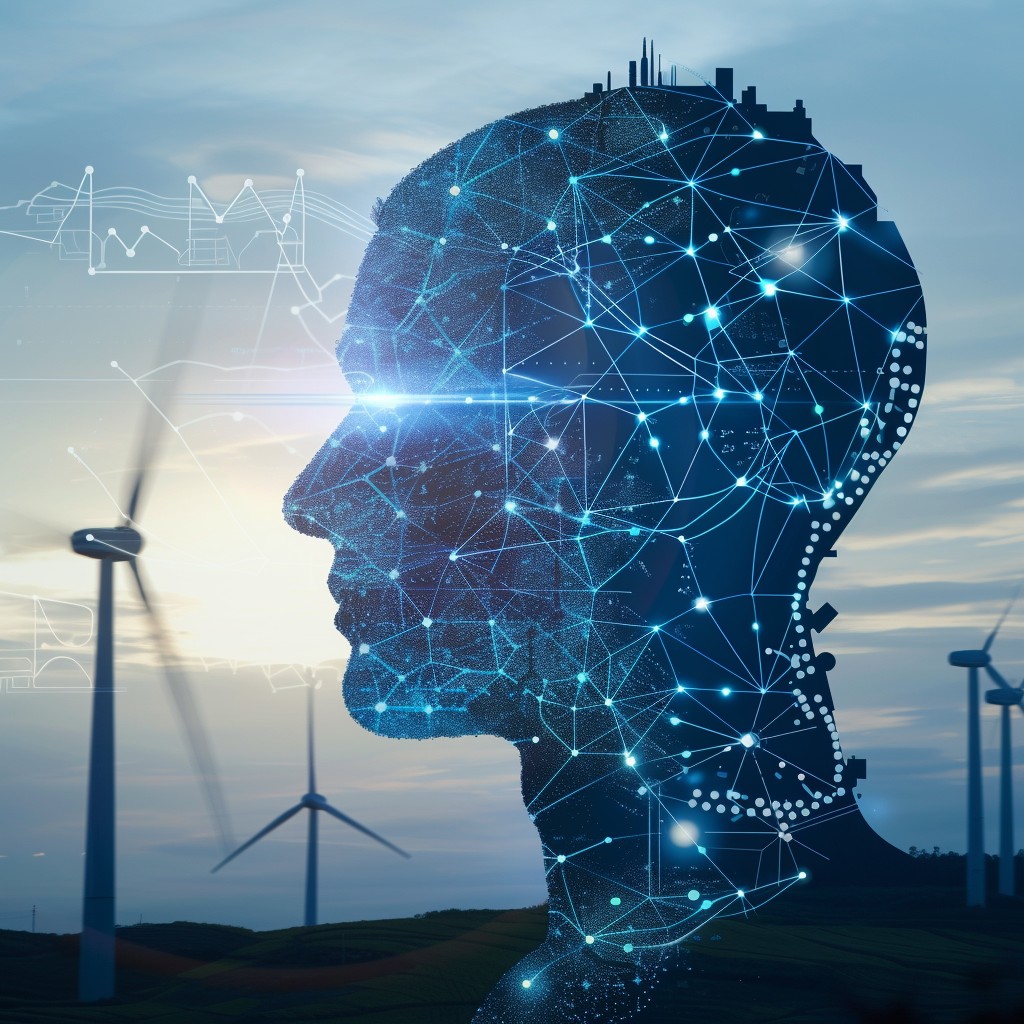In a groundbreaking revelation, the renewable energy sector emerges as a frontrunner in integrating artificial intelligence (AI), according to the eighth annual Global Energy Talent Index (GETI) conducted by Airswift, a leading STEM workforce solutions provider. With nearly 12,000 energy professionals surveyed across the globe, the study sheds light on the remarkable pace at which renewables professionals are embracing AI technologies and the consequential impact on the industry landscape.
Surpassing the industry average, 32 percent of renewables professionals already utilize AI, underscoring the sector’s progressive stance. Moreover, an additional 13 percent anticipate AI adoption within six months, indicative of a swift trajectory toward technological integration. This robust adoption underscores the sector’s proactive approach towards harnessing AI’s potential to optimize operations and drive innovation.
AI in optimism and skills development
The survey’s findings reveal a pervasive optimism among energy professionals regarding AI’s future impact, with nearly 90 percent expressing confidence in its transformative potential. Anticipated benefits include enhanced productivity, improved career progression opportunities, and increased salaries.
However, with AI’s ascendancy, the demand for specialized skills is expected to surge, particularly in technical domains such as IT, programming, software engineering, and machine learning. Respondents foresee a heightened need for ‘soft skills’ like critical thinking and problem-solving to complement AI capabilities, emphasizing the enduring value of human ingenuity in conjunction with technological advancement.
Implications for the workforce and industry dynamics
Janette Marx, CEO of Airswift, asserts that the renewables industry, by its nature, is at the forefront of AI adoption, setting a precedent for others to follow suit. She underscores the importance of talent retention and career advancement in a dynamic sector where professionals are inclined to seek opportunities aligned with AI-related advancements. Furthermore, integrating AI presents novel challenges concerning data security and ownership, prompting companies to bolster cybersecurity measures and leverage AI’s predictive capabilities to mitigate risks effectively.
As green businesses increasingly explore AI applications, initiatives such as ClimateGPT and E.ON GPT exemplify the sector’s commitment to leveraging AI for climate action and operational efficiency. Additionally, AI-driven solutions offered by Concrete.ai and Metris Energy illustrate the diverse applications of AI in optimizing material selection and facilitating solar energy adoption.
Salary trends and career mobility
Against the backdrop of global decarbonization efforts, the renewables sector witnesses a resurgence in salaries, surpassing pre-pandemic levels. Notably, 51 percent of professionals report a pay increase, reflecting the sector’s buoyancy despite economic uncertainties.
Moreover, the prevalence of overseas job transfers has surged, indicative of the industry’s global footprint and demand for diverse talent. With approximately 32 percent of workers receiving multiple headhunting offers, job mobility remains a prevalent trend, with career progression and professional development driving workforce dynamics.
The GETI 2024 report underscores the renewables sector’s leadership in AI adoption and its profound implications for workforce dynamics and industry evolution. As AI reshapes the energy landscape, professionals are poised to navigate emerging opportunities and challenges, underscoring the imperative for continuous skills development and strategic talent management in a dynamic and forward-thinking industry landscape.




